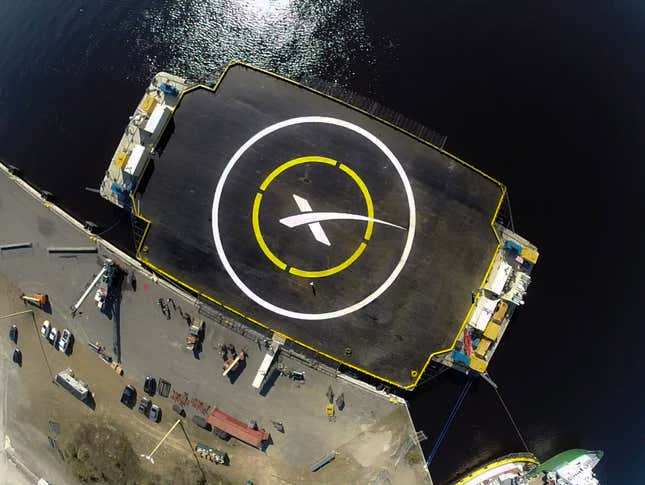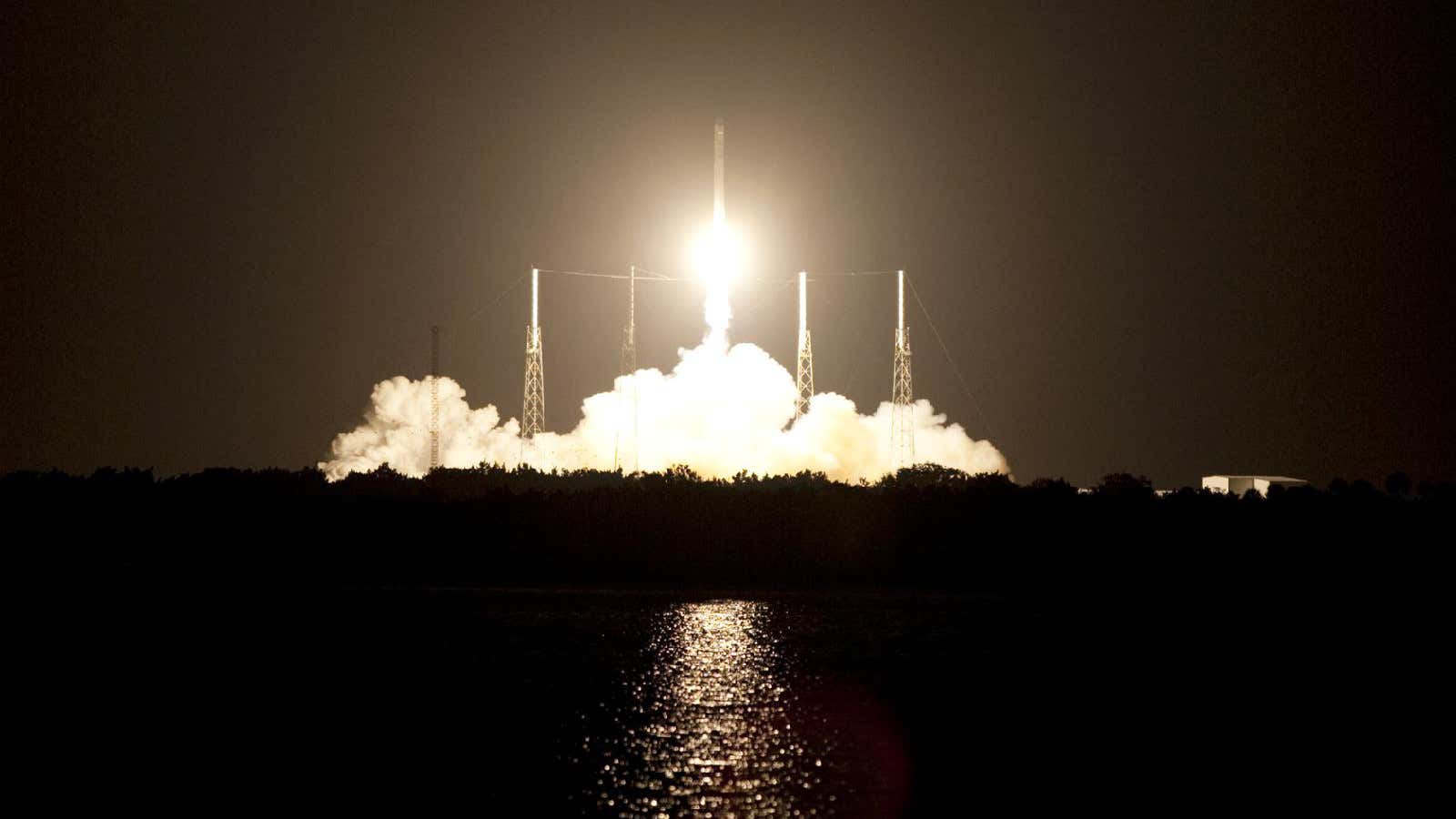A mission to supply the International Space Station next week could change space-flight as we know it—by successfully returning a used rocket booster to Earth.
SpaceX’s Jan. 6 launch will send a remotely piloted space capsule to the ISS with food, experiments, and two tiny, Earth-observing satellites called cubesats. But the arguably bigger news is that the company, led by CEO and chief rocket designer Elon Musk, will attempt to fly the rocket that carries it into orbit back to earth and land it on a floating platform akin to an oil rig.

Typically, the first stage of a rocket that carries a payload into space is abandoned, falling into the sea. But SpaceX has been developing the technology to land and reuse those stages—a challenge considering the SpaceX Falcon 9’s stage 1 rocket is 14 stories tall and re-enters the atmosphere traveling 1,300 m per second.
But if SpaceX can land the rocket and reuse the stage, it will be a game changer for the company, potentially reducing the cost of launches by tens of millions of dollars and creating what investors and executives believe will be disruptive access to orbit.
The technology is so important to the company that it has launched a legal battle over its intellectual property with Blue Origin, the space company founded by Amazon CEO Jeff Bezos.
Last March, Musk said his company would “land a stage at Cape Canaveral by the end of the year.” That proved wishful thinking, but not by much: The Jan. 6 launch and attempt to return the stage originally was scheduled for mid-December but bumped after an incomplete rocket engine test prompted SpaceX to delay the attempt, out of “an abundance of caution.”
In October, Musk told an MIT audience that, in a dozen launches scheduled over the following year, there was about a 50% chance that the company would land a rocket on its floating platforms and re-fly it. While the company has been trying to manage expectations, warning that the first attempts may fail, it does have some confidence from the last two launches that it managed to bring down softly into the ocean.
Looking ahead, it’s likely that SpaceX will successfully land a rocket stage for re-flight during one of its 12 flights in 2015 on behalf of the US government or satellite companies. To be sure, Musk has a tendency toward overly optimistic predictions, but this challenge could be just within his company’s grasp.
